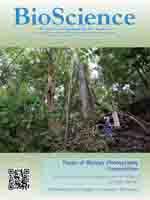On June 1, AIBS will honor the professional achievements of three globally recognized biologists with the Distinguished Scientist Award, the Outstanding Service Award, and the Education Award. “The impact these individuals have made on biology has changed the trajectory of our science and our society in creative, significant, and enduring ways,” said AIBS President Susan G. Stafford.
The awards will be presented during an innovative AIBS program in which an estimated two dozen graduate students and postdoctoral scholars in the biological sciences will be brought together with the award recipients, members of the AIBS Board of Directors, and others for a cross-generational conversation about the profession of biology.
“This unique program will help us all learn about how we can collectively move our profession forward,” said Stafford.
The 2011–2012 AIBS Distinguished Scientist Award: Barbara Schaal
In 2005, Barbara Schaal became the first woman elected vice president of the US National Academy of Sciences. She also serves on the President's Council of Advisors on Science and Technology and is the Mary-Dell Chilton Distinguished Professor in the Department of Biology at Washington University in St. Louis.
Schaal was among the first to use molecular-biology-based approaches to understand evolutionary processes in plants, and she has worked to advance our understanding of plant molecular systematics and population genetics. Research in her laboratory has also addressed issues in conservation biology, including the loss of genetic variation in isolated plant populations.
The 2011–2012 AIBS Education Award: Diane Ebert-May
Diane Ebert-May is one of the foremost experts in the United States on teaching and learning in college biology. She was among the early advocates for innovation in undergraduate biology education and has argued strongly for a scientific approach to improving student learning outcomes. Ebert-May encourages her colleagues to “teach the way you conduct science, so that teaching and research become naturally integrated.” She has helped faculty members across the nation introduce modern teaching methods into their courses.
Diane Ebert-May on Niwot Ridge, in Colorado, where she conducts long-term plant-ecology research. Photograph: Diane Ebert-May.

Ebert-May is a professor of plant biology at Michigan State University, she presently serves as an associate editor for Frontiers in Ecology and the Environment and on the editorial board for Life Science Education, and she also maintains an active field-research program on tundra vegetation ecology. Ebert-May has served as the director of the Lyman Briggs School at Michigan State University and directed the Science and Mathematics Learning Center at Northern Arizona University. She has authored dozens of scholarly publications on science education or ecology and has been an active participant on national advisory committees.
The 2011–2012 AIBS Outstanding Service Award: Thomas Lovejoy
Thomas Lovejoy is a professor in the Department of Environmental Science and Policy at George Mason University and the biodiversity chair at the H. John Heinz III Center for Science, Economics and the Environment, where he previously served as president. He has also been a senior advisor to the president of the United Nations Foundation, and the chief biodiversity advisor and lead specialist for the environment for Latin America and the Caribbean at the World Bank. He has held leadership positions with the Smithsonian Institution and the World Wildlife Fund, and he is a past-president of the Society for Conservation Biology and of AIBS. His volunteer service with professional scientific organizations, natural history museums, and environmental and education organizations is significant.
Lovejoy is an internationally recognized champion for biodiversity, a term he is credited with establishing, whose career is a model for translating biological research into environmental conservation.







